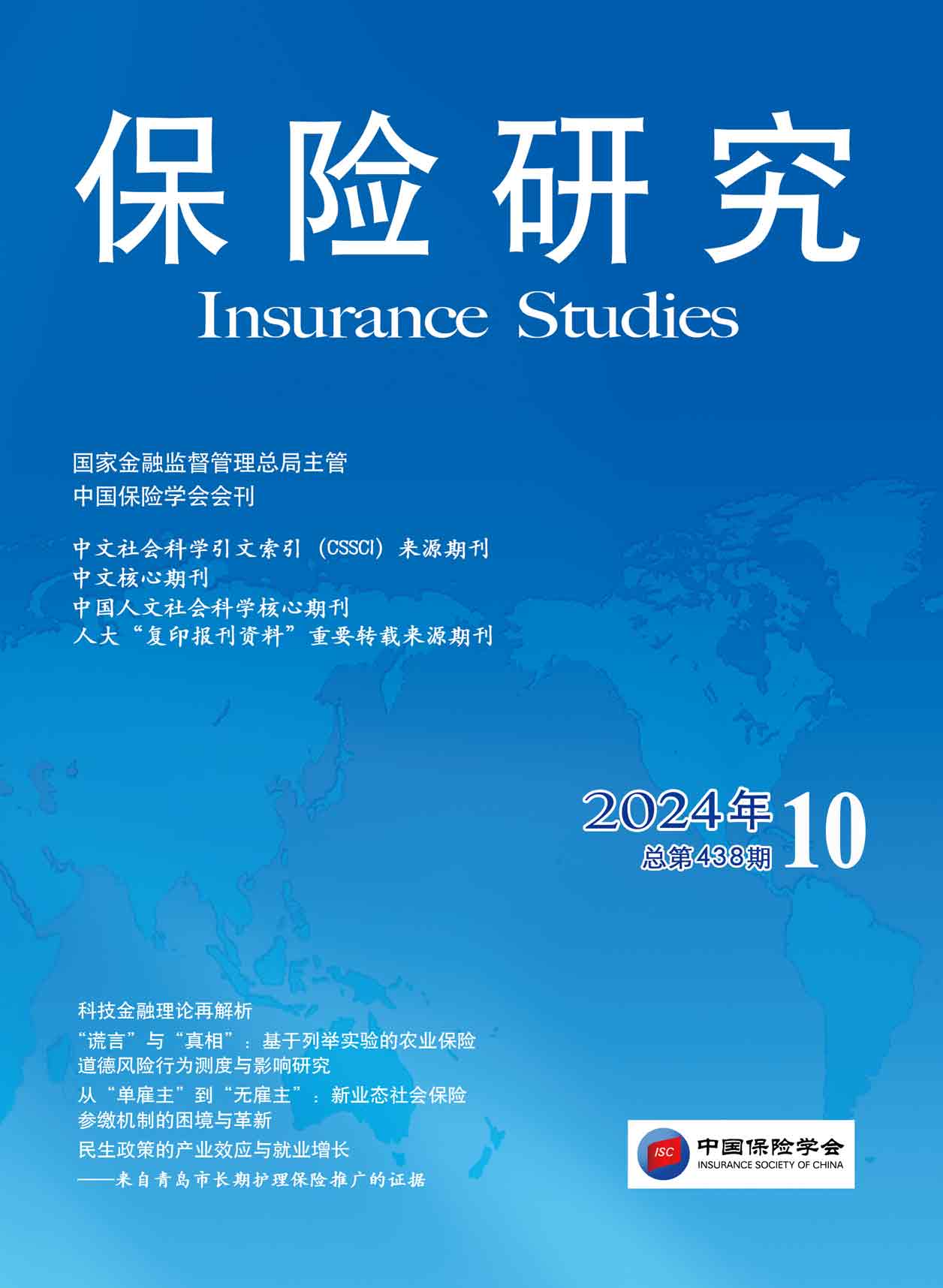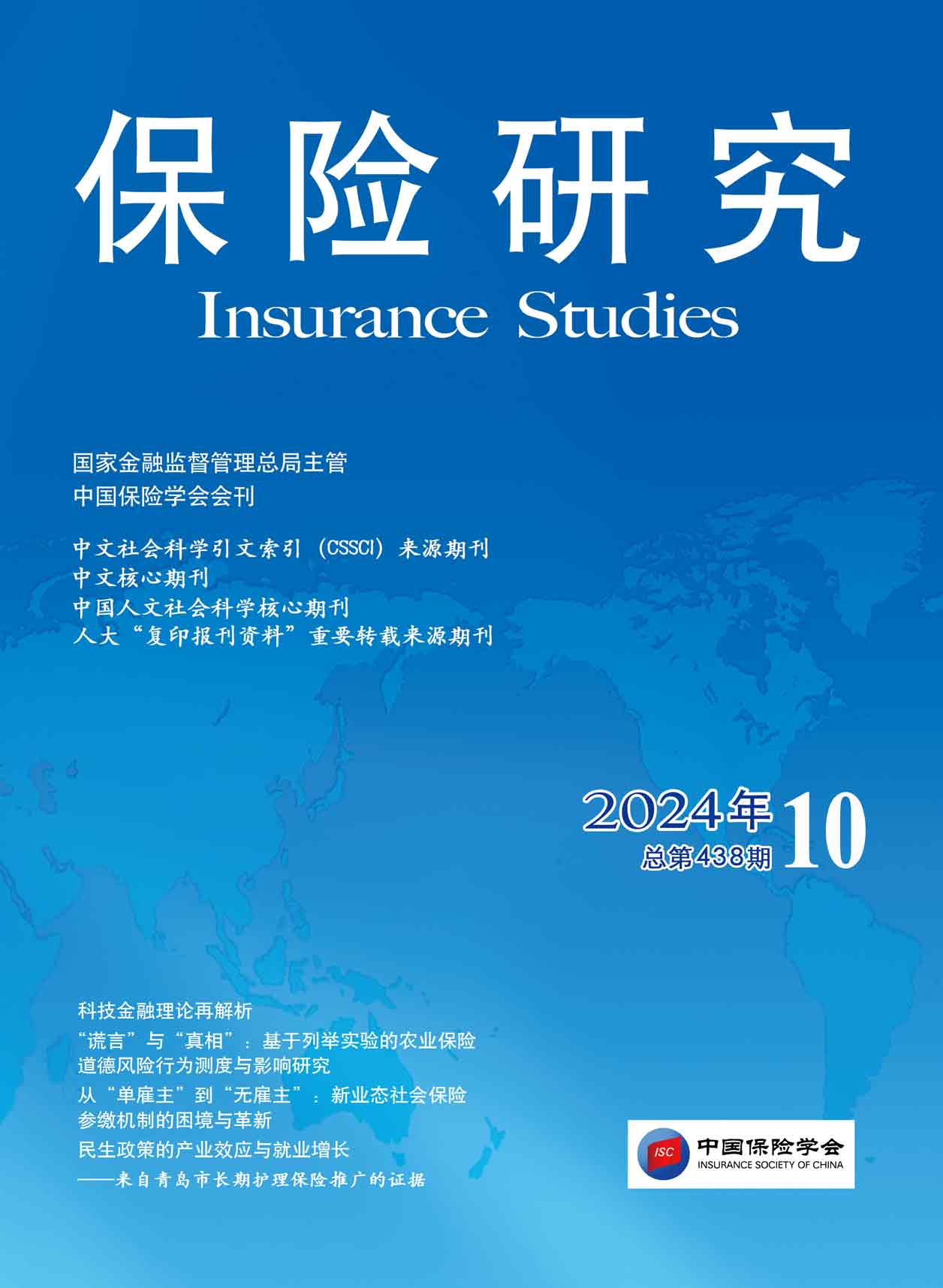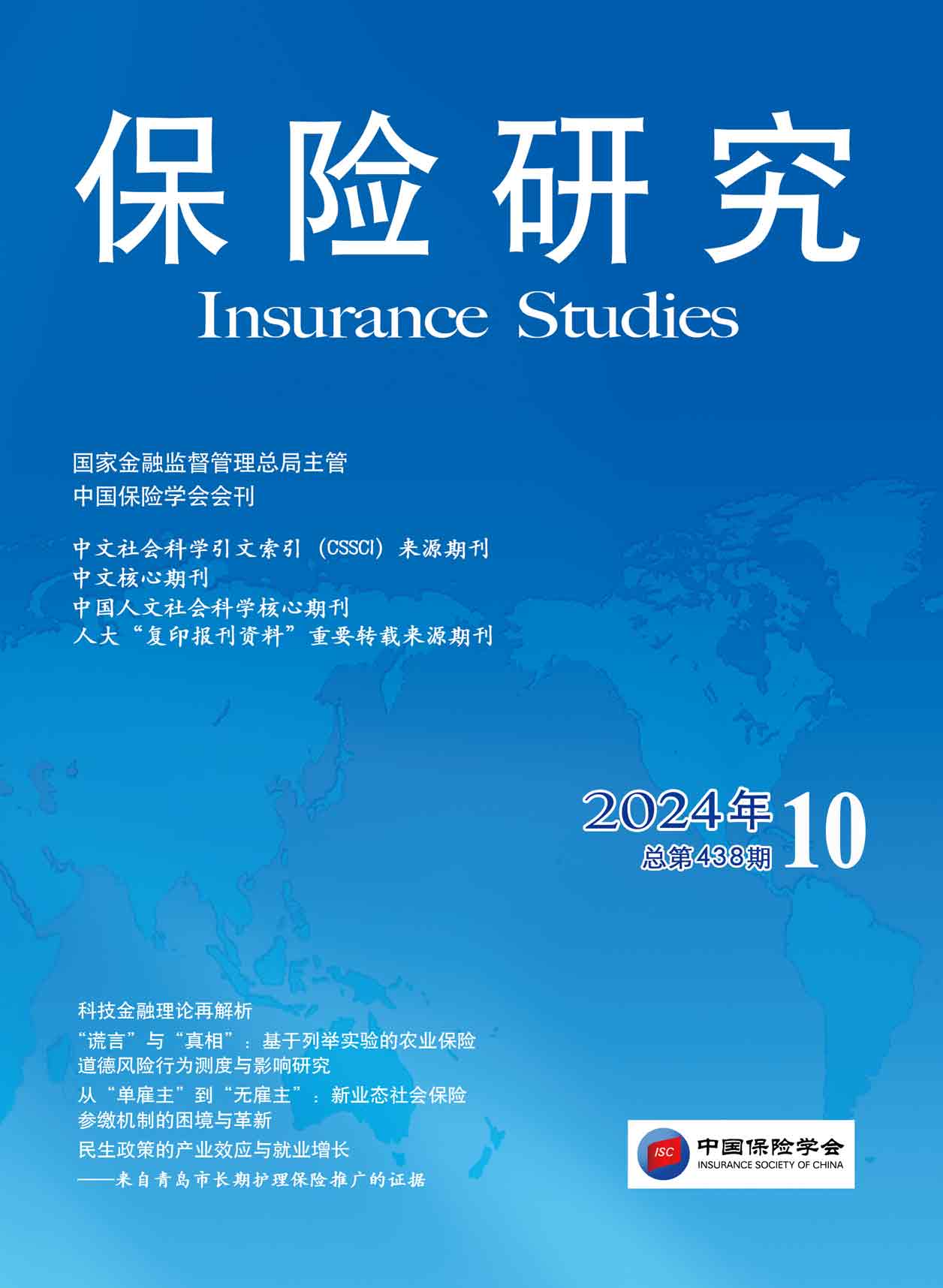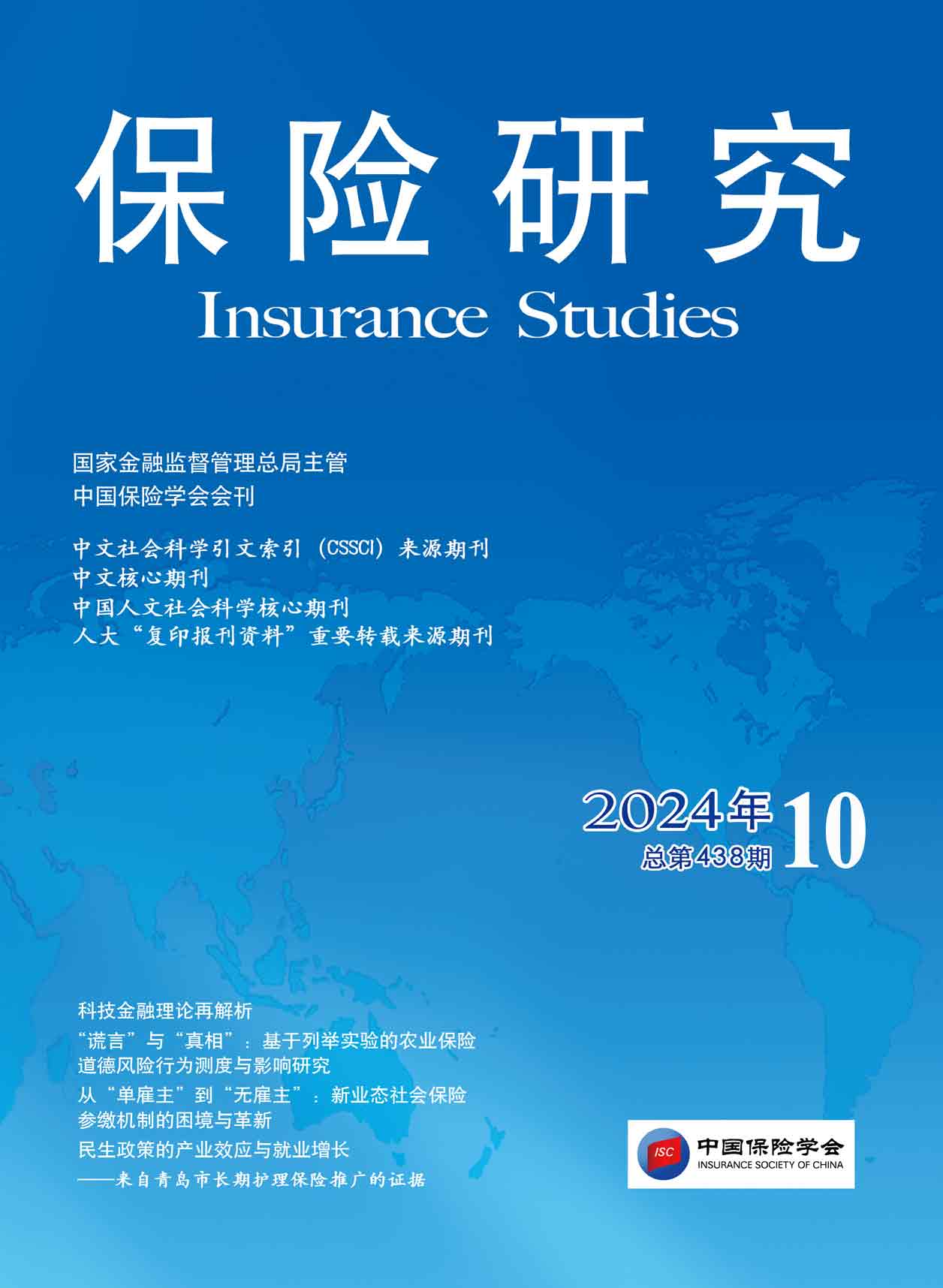
《保险研究》20241006-《“谎言”与“真相”:基于列举实验的农业保险道德风险行为测度与影响研究》(易福金、许晴、燕菲儿、胡鸣宇)
[中图分类号]F840[文献标识码]A[文章编号]1004-3306(2024)10-0073-15 DOI:10.13497/j.cnki.is.2024.10.006
资源价格:30积分
- 内容介绍
[摘 要]农业保险作为分散农业风险的重要工具,在促进农民福利提升及农业经济稳定发展中起到了至关重要的作用。然而,保险市场信息不对称的痼疾在一定程度上阻碍了农业保险高质量发展。与以往研究相比,本文开创性使用了列举实验方法探寻了农户事后道德风险行为存在的证据,并判断引发农户道德风险的关键因素以及该行为对农业保险需求的影响。本研究也为在农业保险活动中,难以获得判断敏感道德风险行为实际证据的难题提供了简单易行的技术解决方案。研究发现:首先,被访农户的确存在放弃补救和谎报损失两类事后道德风险行为,而利用传统的直接询问方法会低估这类行为发生的严重程度。其中,26%的农户存在放弃补救行为,15%的农户存在谎报损失行为。第二,保险公司及时定损对“放弃补救”具有显著负向影响,家庭内村干部数量对农户“谎报损失”具有显著的正向影响。第三,因为道德风险行为可能使农户获得更多的保险赔付,因此其在一定程度上提升了农户的农业保险支付意愿。
[关键词]农业保险;道德风险;列举实验;保险需求
[基金项目]本项研究得到国家自然科学基金-盖茨基金国际合作重点项目(72261147758)、国家社会科学基金项目(22VRC178)以及浙江省哲学社会科学规划领军人才培育专项/省社科规划重大项目(24YJRC01ZD)的资助。
[作者简介]易福金(通讯作者),浙江大学中国农村发展研究院、公共管理学院教授;许晴,南京农业大学经济管理学院硕士研究生;燕菲儿、胡鸣宇,南京农业大学经济管理学院博士研究生。
“Lies” and “Truth”:A Study on the Measurement and Impact of Moral Hazard Behaviors in Agricultural Insurance Based on Emuneration Experiments
YI Fu-jin,XU Qing,YAN Fei-er,HU Ming-yu
Abstract:Agricultural insurance,as an important tool for diversifying agricultural risks,plays a crucial role in promoting the improvement of farmer well-being and the stable development of agricultural economy.However,the chronic problem of information asymmetry in the insurance market has,to some extent,hindered the high-quality development of agricultural insurance.Compared with previous studies,this article pioneers the use of enumeration experimental methods to explore the evidence of post-event moral hazard behavior among farmers,and to determine the key factors that trigger moral hazard among farmers and the impact of this behavior on agricultural insurance demand.This study also provides a simple and feasible technical solution for the difficulty of obtaining practical evidences to judge sensitive moral hazard behaviors in agricultural insurance activities.The research has found that:firstly,surveyed farmers do exhibit two types of post-event moral hazard behaviors:giving up remedies and false reporting of losses,and using traditional direct questioning methods may underestimate the severity of such behaviors.Among them,26% of farmers have abandoned remedial actions,and 15% of farmers have falsely reported losses.Secondly,timely assessment of losses by insurance companies has a significant negative impact on “abandonment of remedies”,and the number of village cadres within households has a significant positive impact on “false reporting of losses” by farmers.Thirdly,because moral hazard behaviors may lead to more insurance payouts for farmers,it,to some extent,enhances their willingness to pay for agricultural insurance.
Key words:agricultural insurance;moral hazard;emuneration experiments;willingness to pay

《保险研究》20241001-《科技金融理论再解析》(张明喜)

《保险研究》20241002-《重大慢性病与中国老年家庭财产消耗——兼论保险的调节效应》(刘靖、张晓慧、毛学峰)

《保险研究》20241003-《监管问询函是否影响保险定价决策?——基于董事高管责任保险合约的经验证据》(徐一泽、李延胤、许荣)

《保险研究》20241004-《增额终身寿险内嵌退保期权风险研究》(周书正、刘迪)

《保险研究》20241005-《基于两阶段分位数随机森林的非完全支付赔款预测》(李政宵、刘钰冰)

《保险研究》20241006-《“谎言”与“真相”:基于列举实验的农业保险道德风险行为测度与影响研究》(易福金、许晴、燕菲儿、胡鸣宇)
